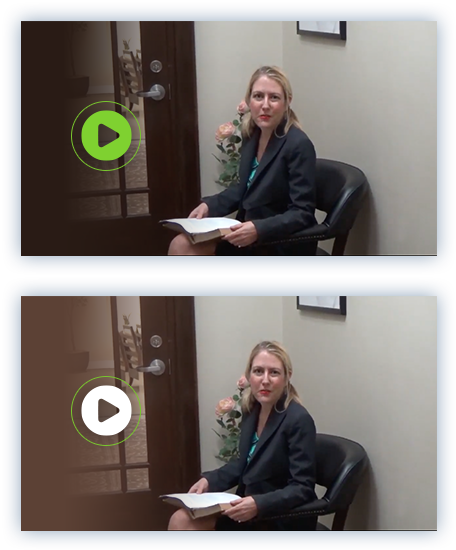Tampa Family & Divorce Attorney
If you are facing making complicated decisions about difficult family matters, you do not have to go it alone. The smart, tough Tampa family & divorce attorneys at Samantha L. Dammer have decades of experience protecting our clients’ rights.
We offer professional legal representation to protect your rights if you are involved in any of the following legal matters:
-
Divorce– divorce is a legal action filed by a married person or persons to end the marital relationship. It has the effect of restoring the parties to single status. In a divorce, the court also can issue orders for spousal support, child custody, child visitation, child support, and division of shared property, assets, and debts.
-
Dissolution of Marriage– In Florida, the official term for divorce is “dissolution of marriage.” In order to obtain a Florida divorce, one or both spouses must be Florida resident for at least six months before the dissolution action is filed. Also, Florida does not require that there be grounds for divorce. All that is required is that it be established that the marriage is “irretrievably broken.” However, there are four types of dissolution, depending on the circumstances. They include simplified, uncontested, contested, and default
-
Alimony– After a property distribution has been made, the court may consider an award of alimony. Alimony can be granted to either spouse, depending on the circumstances. There are a couple types of alimony, including rehabilitative alimony (which is granted for a short period to help one spouse who is in the process of redeveloping skills and working toward regaining financial independence), bridge-the-gap alimony (which is short term to help one spouse with the financial expenses involved in transiting from married to single life), durational alimony (which is for a period of time depending on the circumstances) and permanent alimony (which continues until the receiving spouse remarries or until either spouse dies).
-
Equitable distribution of assets and liabilities– Florida law directs the court to start with the premise that a distribution of marital property will be equal between the spouses. However, the statute does recognize that there may be situations that justify awarding a greater percentage of some or all assets to one spouse over the other. Florida Statute 61.075(1) lists several factors that may justify an unequal division of property.
-
Establishing child support– Florida law places a responsibility on each spouse to support their children based on the needs of the children and each spouse’s income. The obligation to provide child support typically ends when the child reaches age 18, but there are exceptions.
-
Child support modification– Florida law allows for a child support modification petition anytime the petition would result in a change in support of at least 15% or $50, whichever is greater. If there is a prior order for child support, either parent may file to have the support obligation modified if there is a “substantial change in circumstances.” Common reasons for seeking modifications include an increase or decrease in the income of the parent paying or receiving the child support payment, as well as if there is an ongoing change in the parenting time and/or responsibilities exercised by either parent.
-
Child support arrearage– if a parent fails to pay court ordered child support, there are several options for obtaining enforcement. These include garnishment actions, motions for contempt, interception of federal income tax returns, suspension of licenses (including driver’s license, license plate(s), and vehicle registration(s)), and cancelling of non-paying parent’s passport.
-
Establishing or modifying parenting plans or custody– a parenting plan is required in all cases involving time-sharing with a minor child or children, even when time-sharing is not in dispute.
-
Paternity– Establishing paternity identifies the legal father of a child. It also gives rights and benefits to the mother, the father, and the child. Paternity gives both parents the legal right to get child support, get a court order for visitation or custody.
-
Domestic injunctions– a petition for an injunction against domestic violence can be filed against a person who either now or in the past has lived with you as “family.” Family includes people who are related to you by blood or marriage, spouses, ex-spouses, parents, grandparents, aunts, uncles, parties that are or were intimately involved and living together but were never married, adopted children, step-parents and step-children, and others. It also includes a person who is the parent of your children, regardless of whether or not you have ever been married or lived together. Domestic violence includes assault, aggravated assault, battery, aggravated battery, sexual assault, sexual battery, stalking, aggravated stalking, kidnapping, false imprisonment, or any other criminal offense resulting in physical injury to the individual seeking the injunction or that individual’s family or household members who live in the same single dwelling unit.
-
Mediations, Depositions and Other Court-Related Representation– because of the seriousness of the issues, attorney representation is recommended for all family court matters, including depositions and mediations. A deposition is a witness’s sworn out-of-court testimony. Because it is given under oath and can be used against the witness, it is important to have legal representation at any deposition. It also is important to have legal representation at any mediation, whether or not it is court ordered. An attorney will advise you of your rights and help to ensure that your legal interests are fully protected.
Knowledgeable Divorce and Family Attorneys Serving the Tampa Area
At Samantha L. Dammer, our firm’s lawyers can give you the guidance and advice that you need to help you resolve all of your family court matters. We offer candid and frank legal advice so that you always know the status of your case and what we believe are your best available legal options. You deserve strong legal representation. Call us today at 813-221-3759 or use our online contact form to put our skilled, aggressive attorneys in your corner.


